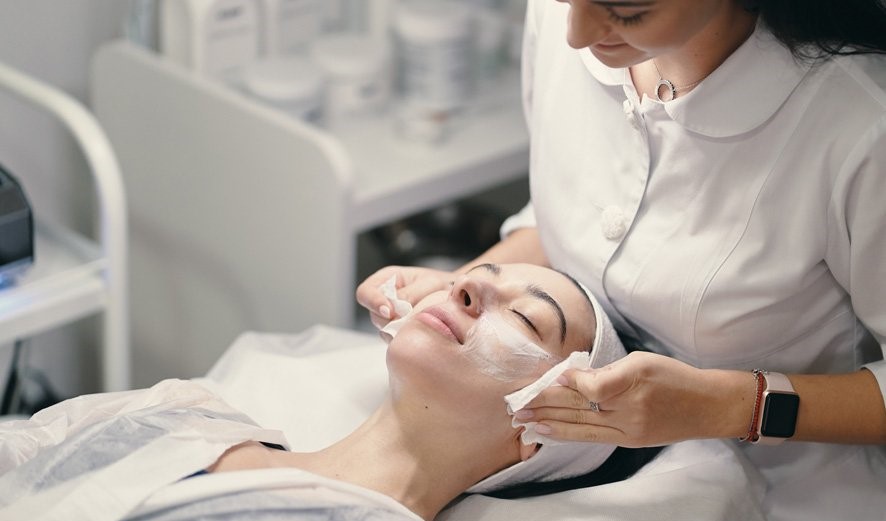
Professional Beauty Insurance
Anyone working in the beauty business needs to have professional beauty insurance. Considering you’re working in direct contact with your clients and applying potentially dangerous or allergenic products to their skin, liability insurance is a must. Fortunately, professional beauty insurance is relatively affordable. According to NimbleFins, beauty liability insurance can cost as little as £40 to £60 a year for a self-employed or freelance beauty therapist. (Read more here: https://www.nimblefins.co.uk/business-insurance/beauty-insurance-mobile-freelance)
Freelance beauty insurance
Beauty therapists not working for a salon or other business will need to arrange their own freelance beauty insurance. Without protecting a company’s business insurance, you need to protect yourself against potential claims or losses. There are a few basic insurance types that most freelance beauty therapists will need, such as public liability and treatment liability coverage. Below we’ll explain what these cover and give examples to illustrate how they might be used.
Keep in mind that liability insurance covers both legal defence costs as well as any compensation you’re found liable to pay. It will even help defend frivolous lawsuits when you’ve been accused but have done nothing wrong.
Public liability insurance for beauty therapist
Since beauty treatments are carried out in person, all beauty therapists and beauty salons will need public liability insurance. Beauty public liability insurance will cover you if a public member, such as a client, is injured. In contrast, on your property or due to your work, though crucially, it doesn’t cover the actual treatments you carry out.
As you’ll be working directly with the public, you should have public liability insurance that is specific to the beauty industry. This will protect you in case a client is injured in your place of work. Or if their property is damaged because of your business.
Public liability for beauty therapist example: You didn’t notice that a bottle of oil spilt on the floor, and when a client stands up, they slip over on your tiled floor and break their wrist, preventing them from working.
Liability insurance for beauty therapist
In addition to public liability, a beauty therapist should also have treatment liability insurance. Treatment liability insurance will offer peace of mind not only to yourself but to your clients, too. No amount of training or patch tests can exclude the risk of a treatment going wrong. There are so many skin types and conditions, and things aren’t always going to be plain sailing. For example, allergies can appear suddenly, leaving a client with an allergic reaction to an ingredient despite never having an issue with it before. This is why you need cover for the treatments you provide to protect against adverse treatment reactions.
As part of the process, clients should fill out a form before their visit to assess their suitability for any treatments. Doing so will also help you manage your salon reputation, especially in the age of social media reviews.
Example of treatment liability for beauty therapists: The hot wax you use on a client burns their skin, which has been made extra sensitive due to medications they take. They try to sue you as a result.
Beauty insurance compare
Before buying a beauty insurance policy, you’ll want to compare quotes, features, and customer service of multiple market plans. Just like selecting a nail colour, it pays to take your time to consider your needs and compare prices when it comes to beauty insurance, as there are so many different types available.
To compare beauty insurance you can use a business insurance comparison site or go directly to a beauty insurance broker or a direct business insurance provider. Before buying a policy, learn precisely what they will and not cover within the treatments you provide. You’ll need to declare the treatments you carry out and will only be covered for those in many cases. So if you later expand your training and offerings, you may need to amend your beauty insurance policy.
If possible, choose an insurer who can be contacted 24/7. After all, say if your salon was broken into, you’d want to be able to arrange cover straight away, instead of having to wait until they reopen on Monday. Or, if a customer reports a severe allergic reaction to you following a Saturday appointment, you might want advice from your insurer ASAP without having to wait until Monday morning.
Finally, in addition to looking out for a cheap quote, make sure you feel confident that your business would be covered whatever the scenario. In addition to checking the features and customer service access, also look into customer reviews online to see what real customers have to say about their experience with an insurance provider. Putting in the groundwork now will most definitely save you a lot of hassle later down the line, especially if a disaster occurs.
Data source: https://www.nimblefins.co.uk/business-insurance/beauty-insurance-mobile-freelance


